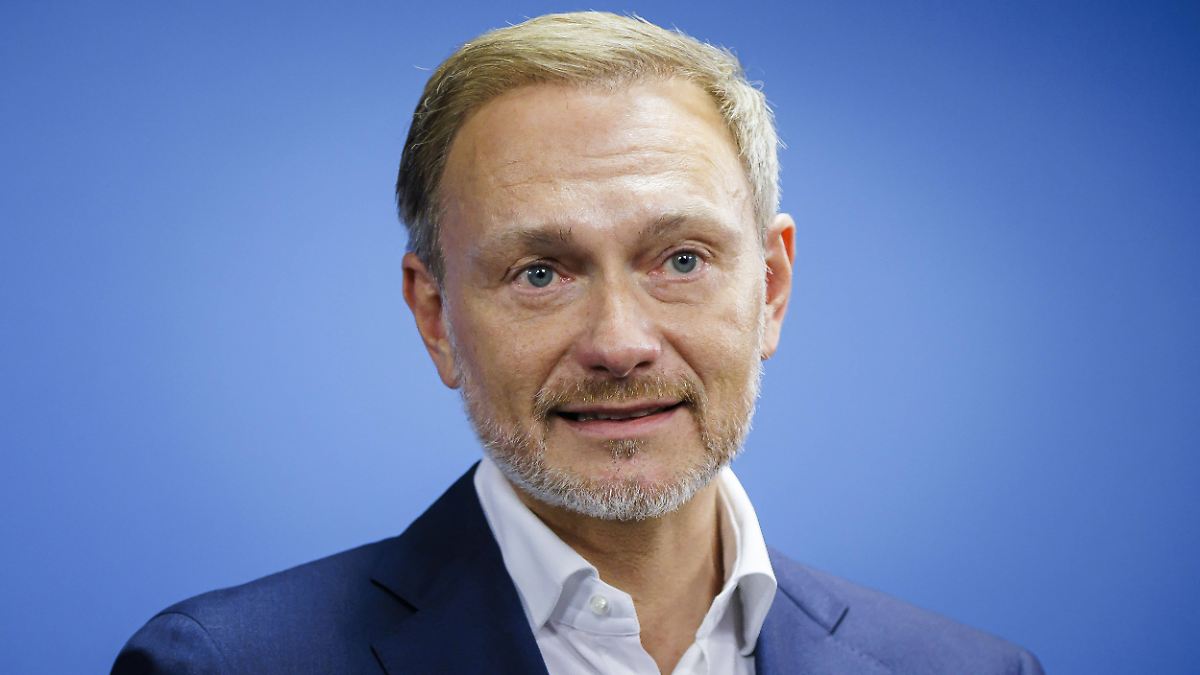Lindner near Maischberger
“Pistorius can rely on a clear commitment”
This audio version was artificially generated. More info | Send feedback
The new federal budget is due to be ready in July. The negotiations in the cabinet are apparently tough. In the ARD talk show “Maischberger”, Finance Minister Christian Lindner explains how he wants to manage not to neglect important goals despite the need for austerity.
Discussions about the new federal budget are currently underway in the traffic light coalition. It will be an austerity budget because there is a shortfall in the double-digit billions. But many ministries do not really agree with the austerity measures imposed on them. That's why the negotiations are more difficult than expected. Federal Finance Minister Christian Lindner is a guest on the ARD program “Maischberger” on Wednesday evening. There he says where he wants to focus.
One thing is clear for Lindner: “There are spending caps for individual houses, and the budget as a whole must be forward-looking. That means doing more for our hard security, from security authorities to the Bundeswehr to supporting Ukraine.” For Linder, a forward-looking budget also means investments in education and digital infrastructure. He also wants to relieve the burden on citizens and incur less debt. The debt brake is still not up for discussion for him. Interesting: The finance minister also does not mention the ecological restructuring of the economy. The minister has no political alternative for a forward-looking budget. But: “Other tasks have to be put aside.”
Germany must therefore reassess its international commitment. Lindner: “We are the developed industrial nation that is strongest in development aid, far ahead of others. But we are also the country that supports Ukraine the most in Europe. We cannot continue in the same way everywhere in the world get involved, but we have to organize it with new priorities.”
Lindner doesn't want to sacrifice any public holidays
Among the ministers who want to spend more money is the Ministry of Defense. Lindner guarantees: “Defense Minister Pistorius can rely on the fact that there is a clear commitment that we will meet the NATO goals, i.e. the two percent of our economic output, to strengthen our defense capability. That is a question of timing, a question of why , and we'll talk about it together.” No finance minister has done more for defense in the last 25 years than him, says Lindner. He claims that for himself. A lot has already been achieved. The traffic light coalition has ended the neglect of the Bundeswehr. “And we will continue to provide support,” says the minister.
But what else could be done to close the existing budget gap? That's what moderator Maischberger wants to know and cites a study that says canceling a public holiday could bring in additional revenue of up to eight billion euros. Lindner doubts that. He doesn't want to cancel a holiday.
Nevertheless, Lindner demands: “We have to think unconventionally.” For him it is important “that our economy gets back on the path to success.” He wants to achieve this by reducing bureaucracy, improving infrastructure and offering tax breaks. At the same time, he advocates economic development measures that cost nothing. For him, this includes putting people who receive citizens' benefit into work. Lindner: “We have to refocus. I believe in energy openness. I'm also in favor of combustion engines, as long as they can be operated in a climate-neutral manner.”
Energy openness could bring about a change in income tax law, which Lindner proposed on Wednesday. This is about a mobility budget. This means: Previously, employees were able to deduct company cars from their taxes. In the future, this will also apply to e-bikes and other vehicles that can be ordered via an app, for example. And: “The flat rate travel allowance remains in place. It is independent of the means of transport, and drivers and pedestrians benefit from it.”




